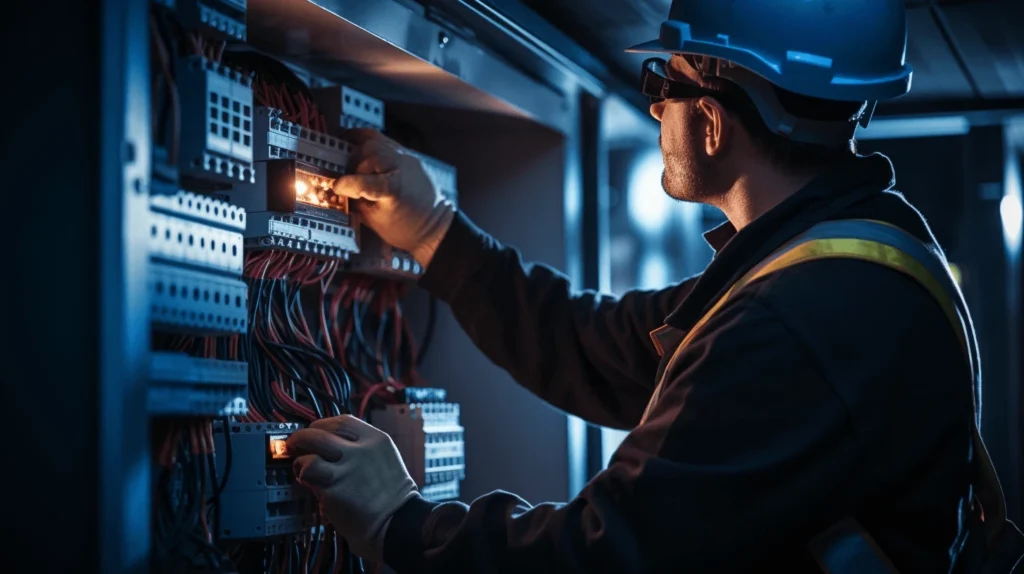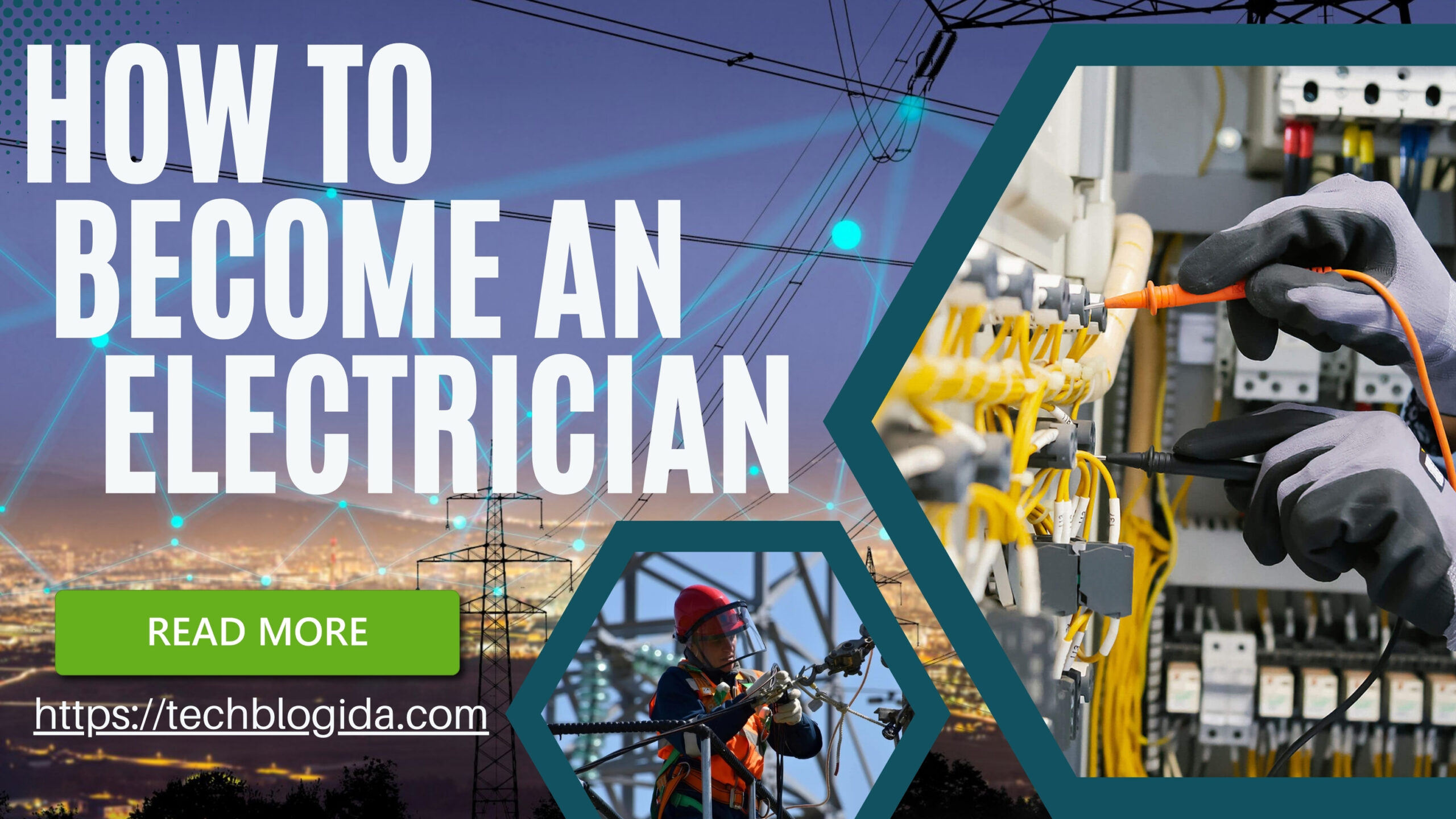Cool ideas can kick off awesome adventures. For me, it all started when I got curious about electricity. I noticed wires, circuits, and switches that give power to our everyday stuff. This got me pumped to become an electrician.
I landed a job that makes me think and lets me help folks out. Being an electrician means using energy and making sure people don’t get hurt. It’s like a mission to make things better.
More and more folks are choosing trade schools and apprentice programs over traditional four-year college degrees. These alternatives get students ready for work faster, as college degrees now take about 5.5 years or more to finish on average.
One popular option is to become an electrician. This job offers good pay and lots of chances for work once you get your license.
But getting your electrician’s license isn’t a walk in the park. You need to study hard, spend years as an apprentice or in school, and log many hours of work experience to get licensed.
In this post, we’ll talk about how to become an electrician, so you can start working towards your career goals.
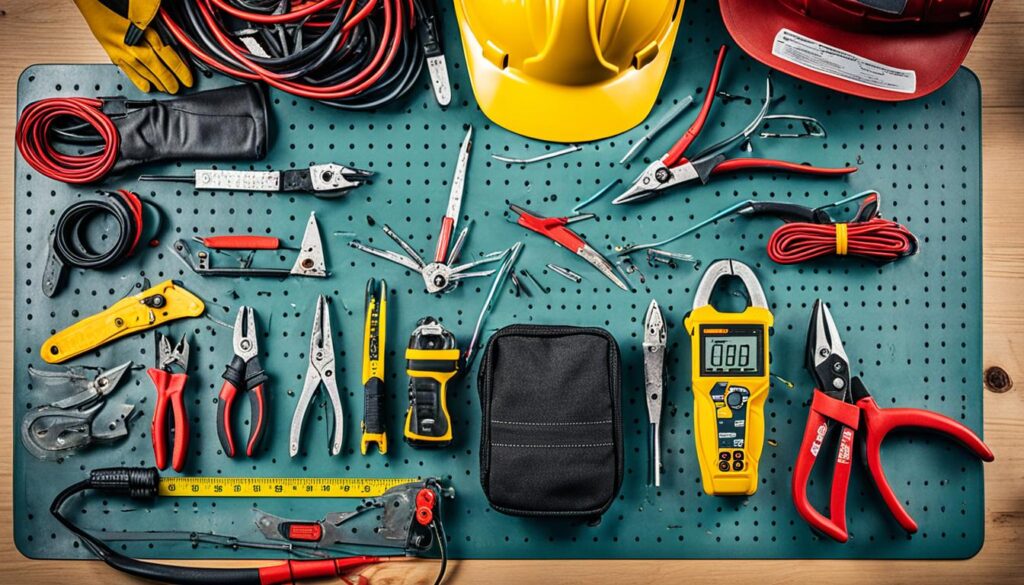
Key Takeaways
- Get what electricians do and where they work. It’s not just one place – they’re all over!
- Check out what schooling you need and how to be an apprentice. This stuff helps you start strong as an electrician.
- Find out about getting your license and picking a special area to focus on. There are lots of ways to go in this job.
- See what the job market looks like for electricians and how much money you can make. Also, learn what skills you need and how to keep getting better.
- Get some good tips and info to help you become a pro electrician with all the right papers.
If you’re a high schooler or want a new job, this guide’s for you. It’ll teach you what you need to know to begin a good career as an electrician. We’ll show you everything from school to work, one step at a time.
Let’s get you excited about working with electricity. We’ll help you become a respected electrician.
Types of Electricians
There are a bunch of different Electrician types, and each one knows a lot about their own special area.
- Journeyman electricians have a license to put in, keep up, and fix electrical systems and gear.
- Master electricians have extra training and know-how with low-voltage high-voltage, and fiber optics systems.
- Residential electricians put in and fix wiring for houses and buildings.
- Industrial electricians do their thing in industrial places, while commercial electricians focus on bigger projects like office spaces or shopping malls.
Understanding the Role of an Electrician
Electricians play a big part in our world. They put in, maintain, and fix the wiring that gives power to our buildings. They do lots of stuff, like putting in new wires and solving problems, to make sure everything’s safe and works right.
Job Responsibilities and Duties
What an electrician does each day can vary depending on their specialty. But, they :
- Check blueprints and plans to figure out and carry out electrical work
- Wire and rewire stuff like outlets and lights
- Check and spot issues in electrical systems
- Make sure their work meets safety and building regulations
- Do routine inspections on electrical equipment
- Keep track of their work
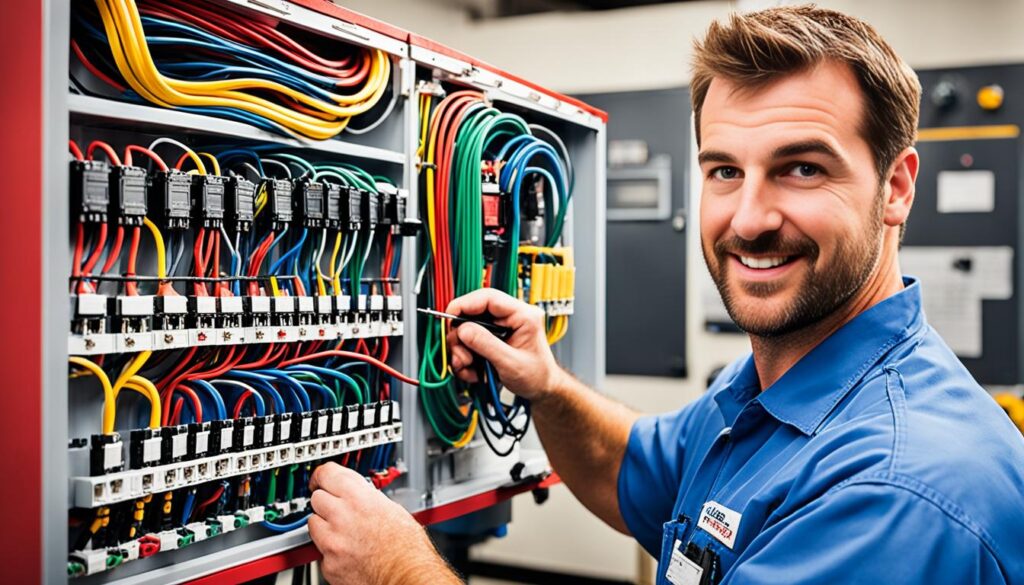
Work Environment and Conditions
Electricians work in lots of places such as construction sites, power plants, and houses. The job can be challenging, as they might have to squeeze into tight spaces or work at heights. They need to be comfortable using tools and getting their hands dirty.
What is the qualification of an electrician? | What is the best qualification for an electrician? |
Electricians need education, training, and a license to work. They usually have: | The best qualification for electricians is a mix of education, training, and special certifications. The best way is to: |
|
|
“Electricians keep our world running making sure homes and businesses have power and light.”
How to Become an Electrician: 5 Steps to Take
Electrical work is tough and risky if you’re not sure what you’re doing. That’s why it’s crucial to get lots of training and work with a licensed pro before you can get your license. Here are the 5 steps you need to take to become an electrician.
- Make Sure It’s What You Want
Before you start your journey, it’s key to look into what being an electrician means.
You don’t want to spend years working towards a goal to find out you hate the job.
Chat with other electricians, follow them around if you can, and check if it’s something you’d like to do for a long time.
- Are You Qualified?
Before you start your path to becoming an electrician, you need to be sure you’re cut out for the job.
Here’s what you need to be an electrician:
– Be 18 or older
– Have finished high school or have a GED
– Be fit and healthy
– Have a way to get to school and work sites
– Be able to work alone and with others
– Be good at following directions
Depending on where you live, you might need to do other stuff before you can start your journey to become an electrician. This article will tell you how to get a license in California.
- Apply For Trade School or Apprenticeship Training
Your next step to becoming an electrician is to apply for your training. You can choose between two options: trade school or apprenticeship.
Trade school happens on a campus with labs to teach you hands-on skills and training. This works great for people who learn best from teachers with lots of experience in a classroom and learn while doing the work with their teachers and classmates. If you want to go to a trade school make sure to pick one that the Division of Industrial Relations in California has okayed; if not, you won’t be allowed to take your license test and work as an electrician.
You can also choose to be an apprentice, which still means you’ll need to go to classes for about three to four years. It’s harder to get into apprenticeships because these programs mix training and work experience and take a long time to finish.
- Study For the Test
After you finish your state-approved trade school program or apprenticeship, you’ll need to learn the national code for electricians to take the test to get licensed.
A lot of trade schools teach you the national code while you’re in school. This way, you start studying what you need for your license test even before you graduate. Some people choose to take the test right after they finish trade school training. But they still have to get verified work experience to get their license.
- Licensure Requirements
Once you’ve studied hard, you can take and () pass the state electrician test. To get certified in California, you’ll also need to get paid work experience to become a licensed electrician.
But, you can work with your “T-Card” while getting your hours. Once you have a license, you can start working as an electrician on your own.
Educational Requirements for Electricians
To become an electrician, you need school and practice. You have to know math, physics, and how electricity works. Most places want you to finish high school or something similar. They also want you to complete an electrical program.
There are different ways to start, but many people choose to apprentice. This combines classroom learning with real work. It’s a good way to gain the skills to be an electrician.
Educational Pathways for Electricians
- High school diploma or something like it
- Technical or job training in electrical work
- Apprenticeship program (mixing classroom learning and hands-on training)
It takes about 4 to 5 years to become an electrician, based on what you pick. In the U.S., an apprenticeship lasts 4 to 5 years. In India, it’s around 3 to 4 years. Be sure to look up what’s needed where you live.
Country | Average Time to Become an Electrician |
United States | 4 to 5 years |
India | 3 to 4 years |
United Kingdom | 4 to 5 years |
Picking your career path matters, but getting a good education and always learning new stuff is crucial. With the right training and hands-on experience, you can have an awesome job as an electrician.
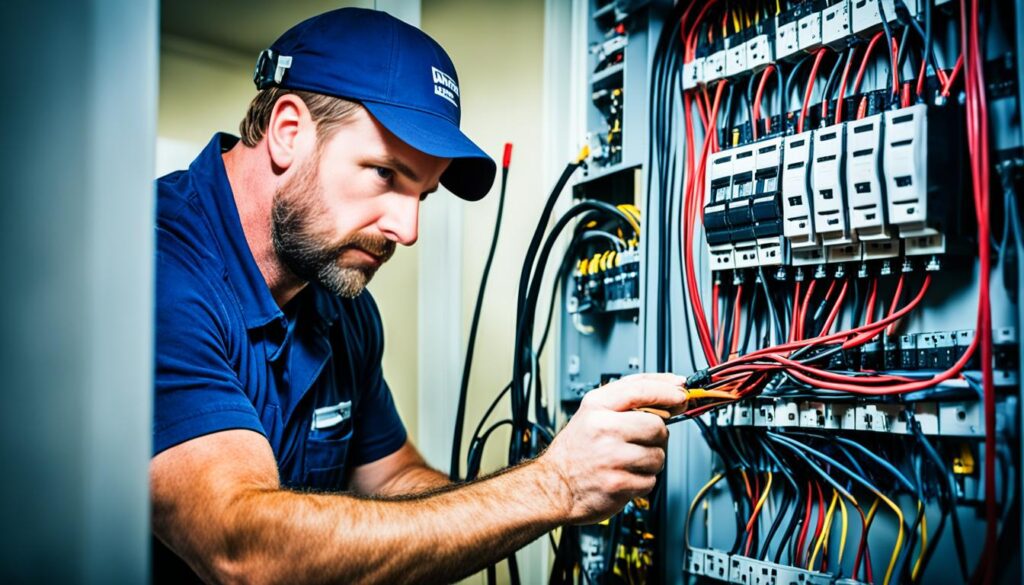
Apprenticeship Programs: The Gateway to Becoming an Electrician
Apprenticeship programs are a cool way to start if you want to be an electrician. They combine classroom stuff with real-world practice. This gives people a chance to learn the trade and make some cash at the same time.
Finding and Applying for Apprenticeships
It’s not hard to find apprenticeship programs. Check out local unions, tech schools, and industry groups. They team up with employers. To start, search for programs in your area and send in a solid application. Mention why you’re into it, what you can do, and how you’re set for this gig.
What to Expect During an Apprenticeship
- You’ll get hands-on training from seasoned journeyman electricians
- You’ll learn about electrical theory, safety rules, and the best ways to do things
- You’ll take on more tasks and build your skills
- You’ll have chances to earn certifications that the industry values
- You’ll get steady pay that goes up as you move through the program
Doing an electrician apprenticeship helps you learn what you need to become a licensed electrician. You’ll get the know-how real-world practice, and papers you need in the U.S.
“To learn the trade and build the skills to do well as an electrician, an apprenticeship is the best way to go.”
How to Become an Electrician
Picking a career as an electrician is a smart move. It gives you job safety good money, and lets you work with your hands. You’ll need to study a bit, train, and get the right licenses and certificates.
- Get your high school diploma or GED: Start by finishing high school or getting a GED. This helps you grasp math, physics, and problem-solving skills you’ll need for electrical work.
- Sign up for a technical or vocational program: Next, head to a technical or vocational school to learn about electrical stuff. These programs take 1-2 years and mix classroom learning with hands-on practice.
- Join an apprenticeship program: After school try to find an apprenticeship program. Unions or contractors run these programs. They give you a chance to work on real projects while you learn and make some money.
- Get the Right Papers and Badges: You’ll need a license or certificate to work as an electrician. You’ll have to pass some tests to prove you know what you’re doing.
- Work and Maybe Pick a Special Area: After you’ve learned the ropes and got your license, start working as an electrician. Lots of people choose to focus on certain kinds of jobs, like houses or companies, to get good at that specific thing.
The way to become an electrician might be different depending on where you live and the rules there. But these steps give you a good idea of what you need to do. If you follow them, you can start a cool job as an electrician that pays well.
Step | Description | Estimated Time |
High School Diploma or Equivalent | Get a high school diploma or GED | 4 years |
Technical/Vocational Program | Go to a technical or vocational program for electrical work | 1-2 years |
Apprenticeship Program | Do an apprenticeship program with on-the-job training and classes | 4-5 years |
Licensing and Certifications | Get the licenses and certifications you need to be an electrician | Varies by state/jurisdiction |
Work Experience and Specialization | Get work experience and think about focusing on certain electrical areas | Ongoing |
“A job as an electrician can give you a stable career good pay, and a chance to work with your hands.”
Check out this guide to kick off a cool career as an electrician. You’ll help keep everything running.
Licensing and Certification for Electricians
To be a good electrician, you need to get a license. Electricians have to get the right paperwork and certificates in their state. They need to ace a big exam that tests what they know and can do.
State Licensing Requirements
In the US, each state has different rules for electrician licenses. But most states follow similar steps. You have to finish some training and pass a test to prove you know your stuff.
The exam checks if you know electrical stuff, safety rules, and the National Electrical Code. Some places make you take extra classes to keep your license valid. This helps electricians stay up-to-date with new guidelines and safe work methods.
For foreign-born people who want to become electricians in the UK, there’s more to do. You might have to get the qualifications and training that the UK accepts. You also need to deal with visa stuff and immigration laws that apply to you.
State | Licensing Requirements | Exam Topics | Continuing Education |
California | Completion of the approved training program, passing the state exam | Electrical theory, safety, National Electrical Code | 32 hours every 2 years |
Texas | Completion of the approved training program, passing the state exam | Electrical theory, safety, National Electrical Code | 16 hours every year |
New York | Completion of the approved training program, passing the state exam | Electrical theory, safety, National Electrical Code | 24 hours every 3 years |
Electricians need to get the right licenses and certifications. This helps them work and by following state rules. They can then provide good service to their customers.
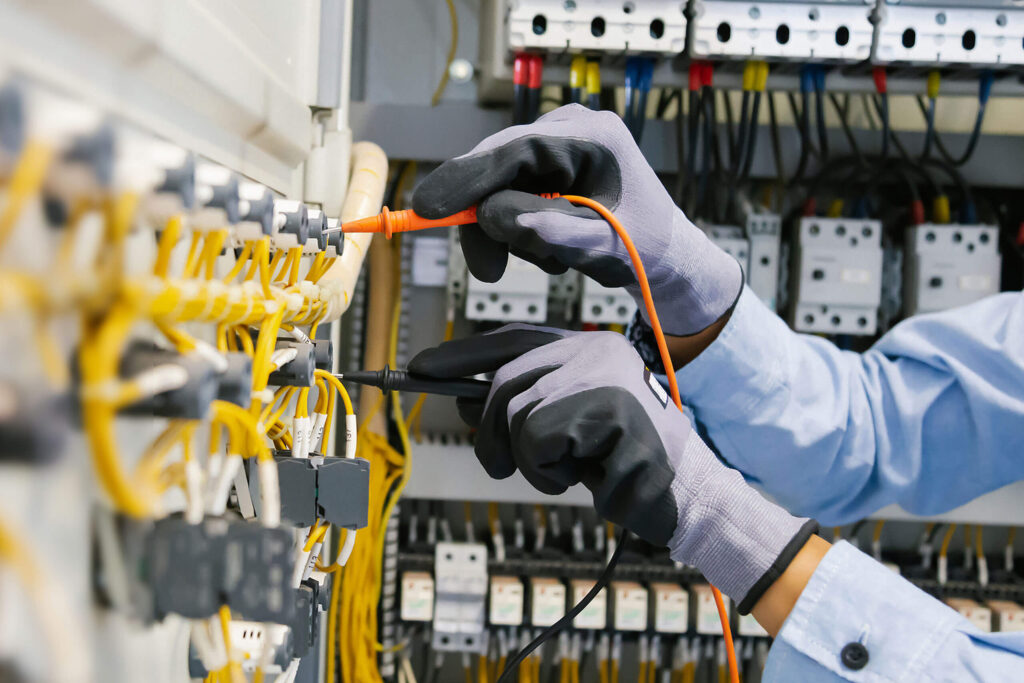
Specializations and Career Paths for Electricians
Electricians can choose specific fields to focus on. They might work on houses, companies, or large-scale projects. The USA offers many job opportunities for electricians.
Residential Electrician
Residential electricians make sure homes are safe and have good lighting. They handle wiring, upgrade old systems, and fix issues like broken circuits. There’s a high demand for them because more houses and buildings need electrical work.
Commercial Electrician
Commercial electricians take on big projects like office buildings and shopping centers. They install and maintain electrical systems. These projects often require specialized electrical work, so they can earn higher wages.
Industrial Electrician
Industrial electricians have jobs in places like factories and power stations. They make sure the big electrical systems keep working. There’s a big demand for them to help with manufacturing and energy production.
To become an electrician, you need to get the proper licenses and do some training. When electricians focus on a specific area, it helps them get better at their work and can result in more money.
Specialization | Job Responsibilities | Demand and Salary |
Residential Electrician | – Wiring new construction | High demand, average salary of $56,900 per year |
Commercial Electrician | – Installing and maintaining commercial electrical infrastructure | High demand, average salary of $61,550 per year |
Industrial Electrician | – Installing and maintaining industrial electrical systems | High demand, average salary of $64,190 per year |
Learning about different job types helps electricians pick their path. This lets them plan their future jobs better.
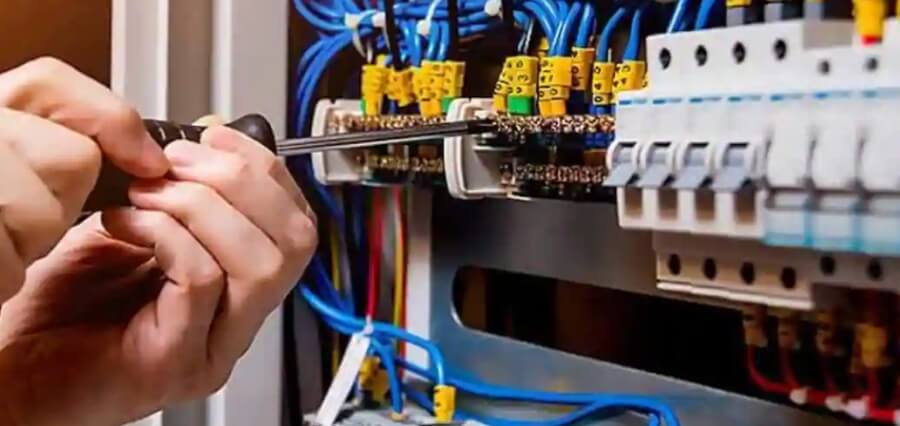
Continuing Education and Professional Development
In electrical work, learning and getting better at your job matter a lot. They help electricians do better than others. If you wanna be one of the top moneymakers in the USA or run your own business, you gotta keep picking up new stuff.
Electricians need to stay up to date with new gadgets, safety rules, and the best ways to do things. To do this, they get more certificates, go to classes, and join groups. This helps them move up in their jobs and give good service to the people they work for.
- Electricians become more in demand when they earn special certifications in areas like renewable energy or high-voltage work.
- Going to conferences gives electricians a chance to network, learn about new trends, and find ways to improve their skills.
- Joining organizations such as the National Electrical Contractors Association (NECA) or the International Brotherhood of Electrical Workers (IBEW) provides them with training, mentorship, and industry support.
Electricians who focus on continuous improvement can position themselves for success. They can aim for top positions in the USA or start their businesses. Their commitment to getting better is what makes them stand out in their field.
Certification | Potential Benefits |
Master Electrician License | Allows for the supervision of electrical projects and the ability to start an independent electrical contracting business. |
OSHA 30-Hour Safety Certification | Enhances knowledge of workplace safety standards and regulations, improving job site practices. |
PV (Photovoltaic) System Installation | Equips electricians with the skills to design, install, and maintain solar power systems, a growing field with high earning potential. |
When electricians keep learning, they can make more cash and become experts in their field. This non-stop learning is what makes the top electricians stand out.

Job Outlook and Salary Expectations for Electricians
The US is gonna need more good electricians. This is because of population growth, construction stuff, and the switch to green power. According to the U.S. Bureau of Labor Statistics, electricians make around $56,900 per year. The top 10% can earn over $98,000. Your paycheck can change depending on where you work, what kind of job you do, and how long you’ve been doing it.
How much electricians get paid can be pretty different for a bunch of reasons:
- Where You Live – Big city electricians and those in expensive areas earn more cash. Folks in small towns or cheaper places don’t make as much.
- Type of Work – People working on buildings, in factories, or with power companies get bigger paychecks. Home and business electricians earn less.
- Special Skills – Electricians who know about green energy or how to run factory machines make more money.
- How Long You’ve Worked – Electricians who’ve been on the job longer rake in more dough than newbies or trainees.
Location | Median Salary | Top 10% Earnings |
New York | $74,310 | $108,870 |
California | $69,640 | $106,390 |
Texas | $52,690 | $87,780 |
Florida | $50,910 | $80,460 |
Electricians in the USA can expect a good future. The Bureau of Labor Statistics predicts job growth of 9% from 2020 to 2030. This growth rate beats most other jobs. As we upgrade our infrastructure and use more green energy, we’ll need more electricians.
“As we fix old buildings and start new projects, we’ll need more skilled electricians in the coming years.”
Tips for Success as an Electrician
Being a top-notch electrician requires more than just knowing the technical stuff. You gotta sharpen your abilities and build some solid connections. This will help you thrive in the electrical world for years to come.
Developing Essential Skills
It’s crucial to have a good grasp on electrical theory, to be able to solve problems and to know your way around tools. These skills make you better at your job and show you’re serious about your work. Plus, if you’re good at talking to people paying close attention to the little things, and always keeping safety in mind, you’ll stand out from the crowd.
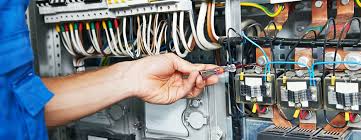
Building a Professional Network
Networking has a big impact on electricians. Joining groups in the industry going to events about the trade, and talking to people with lots of experience can teach you tons. It also gives you a chance to find mentors and stay in the loop about new stuff in the electrical world. Having a solid group of contacts can help you get new gigs and grasp how the electrical business is changing.
The qualification of an electrician and the best qualification for an electrician play a crucial role in being successful. To have a job you love as an electrician, work on getting better at what you do, and build connections with others in the field.
“The most successful electricians are those who are always striving to learn and improve their craft. Stay curious, stay dedicated, and you’ll be well on your way to a thriving career.”
Essential Skills for Electricians | Networking Strategies for Electricians |
|
|
Resources for Aspiring Electricians
People who want to become electricians have lots of ways to learn. Tech schools and job training programs teach about electricity how to stay safe, and how to put things in. Working as an apprentice lets you practice and learn from pros who know their stuff.
In India, a bunch of schools give out diplomas and certificates in electrical engineering. These take about two to three years to finish. Over in the UK, you can do apprenticeships that last up to four years. They mix up classroom stuff with actual work experience.
Online groups and forums are pretty cool for electricians too. They let people hang out ask stuff, and find out what’s new in the field. By checking out these places, folks can pick up a ton about being an electrician. This helps them do well in this cool job.
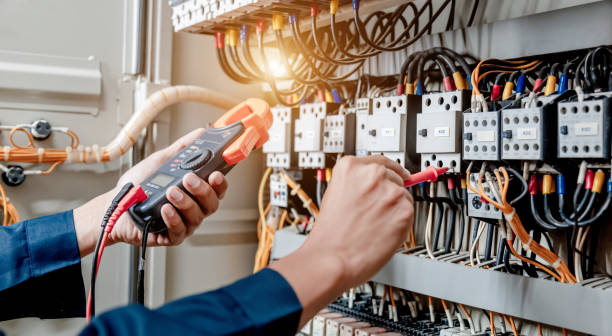
What does an electrician do?
Electricians are skilled workers who know how to handle many issues with electrical power. Their main job is to install, maintain, and fix all kinds of electrical equipment. Based on an electrician’s experience and licensing, they fall into one of these three groups:
Journeyman electrician
A journeyman is the basic level of an electrician. To become one, you need to finish an apprenticeship and get a license. Journeymen can work on their own, but they can’t teach apprentices, run a job site, or get permits for electrical work.
Industrial electrician
Industrial electricians do electrical stuff in big places with huge machines. Think factories, power plants, and chemical plants. These big buildings need more electrical work than houses or shops. To be an industrial electrician, you have to learn from a licensed one as an apprentice or journeyman.
Frequently asked questions
How can a foreigner become an electrician in the UK?
Foreigners who want to be electricians in the UK have to do the same things as UK citizens. They need to finish an apprenticeship and get the right licenses and certifications. They might also have to prove they’re good at English and get their qualifications from other countries recognized.
How much are electricians paid in the USA?
In the USA, electricians earn about $56,900, as per the U.S. Bureau of Labor Statistics. The highest-paid 10% can make over $98,000. Your salary might differ depending on your location, industry, and how long you’ve been working.
What is an electrician called in the USA?
In the USA, electricians set up, keep running and fix electrical systems and parts. They often work in homes, offices, or factories. People call them residential, commercial, or industrial electricians based on where they do their jobs.
Are electricians in demand in the USA?
Yep, there’s a big need for electricians in the USA. This job’s in high demand and it’ll stay that way. Why? Well more people are moving in, we’re building new stuff, and everyone’s going crazy for green energy.
Where in the US do electricians make the most money?
If you’re an electrician looking to rake in the big bucks, head to places like Alaska, Massachusetts, New Mexico, Hawaii, or Washington D.C. But remember how much you make depends on how expensive it is to live there how they need skilled workers, and what kind of work you’re doing.
Can you move to the USA as an electrician?
Sure, it’s doable to move to the US and work as an electrician. You’ll need to get the right work permit and make sure your qualifications and license are recognized in the States. This depends on where you’re from and your immigration status.
What are the highest-paying jobs in the USA?
Top-paying jobs in the US include being an anesthesiologist, surgeon, or CEO of a big company. But skilled trades like electricians can also earn a lot, with the top 10% making over $98,000 a year.
How much do self-employed electricians make in the US?
Self-employed electricians in the USA can rake in a lot of cash, but it’s not the same for everyone. Most make around $59,190 a year, while the top dogs pull in over $98,720. How much you make depends on what kind of work you do where you’re based, who your customers are, and how long you’ve been in the game.
What is the qualification of an electrician?
To become an electrician, you need to finish high school or get something similar. You also have to complete a tech or trade program in electrical work and do an apprenticeship. In many places, electricians need special licenses and certificates too.
What is the best qualification for an electrician?
The top way to get qualified as an electrician is to mix school and hands-on training. This means doing a tech program and working with pros who know their stuff. You also need to get the right papers and licenses to work as an electrician.
How to become an electrician in India?
To work as an electrician in India, you should finish a three-year diploma in electrical engineering or a two-year ITI program. You might also have to get a Wireman’s License by passing tests set up by local big shots. Some electricians go for extra papers to boost their skills and job odds.
How long does it take to become an electrician in the UK?
In the UK, it takes about four years to become an electrician through an apprenticeship. You learn in class and on the job. After you finish, you need to get licenses and certifications to work.
